Extreme strength. Super speed. Telepathy. These types of powers and more tend conjure up images of superheroes—and typically, superheroes are the realm of comics, TV shows, and movies. In books? Not as much. My own superhero novel, We Could Be Heroes, doesn’t have too many contemporaries featuring traditional tights-and-capes superheroes. However, superpowers do wind up in books much more than you might think. It may come in the form of magic or science-based evolution, but the idea of ordinary humans having extraordinary abilities has shown up in some of the most acclaimed science fiction and fantasy novels of recent years—and here are five of them worth checking out.
All The Birds In The Sky by Charlie Jane Anders
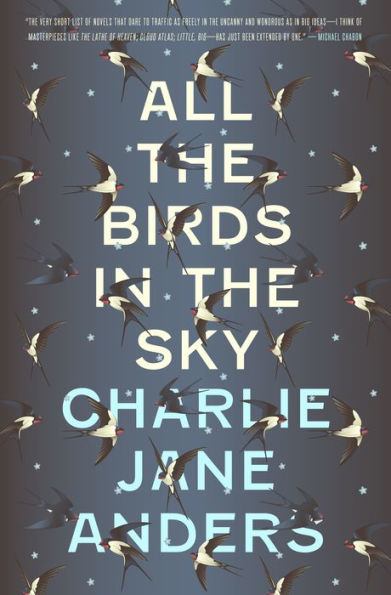
Do witches and magicians count as having superpowers? Sometimes these types of characters are classified elsewhere, but when you look at superhero canon, you’ll find plenty (see Dr. Strange and Zatanna)—and their foes are often those steeped in science. The idea of magic vs. science is an extension of natural vs. unnatural, and Charlie Jane Anders’ award-winning All The Birds In The Sky takes these ideas and runs with them in wild, unpredictable ways across a story that’s equal parts coming of age tale, epic conflict, and sharp satire.
Patricia and Laurence meet for the first time when they’re young as Patricia feels the onset of powers and Laurence builds a home supercomputer. Years later, they come together when Patricia has become a powerful witch and Laurence has become a technological innovator—but they’re quickly put at odds when science and magic have competing ideas on the health of the planet. Weaving themes of environmentalism, technocracy, and free will into a sharp and witty story about friendship and love, All The Birds In The Sky is a dazzling story unlike any other.
The Ten Thousand Doors of January by Alix E. Harrow
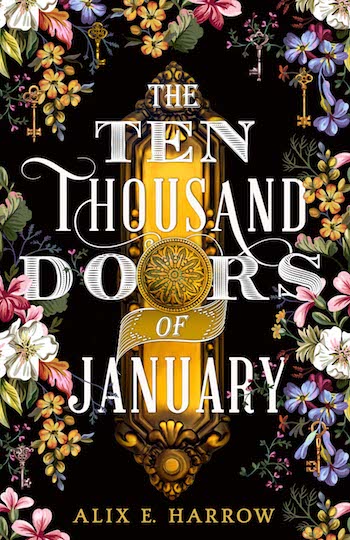
When people think about superpowers, it often leads to things like speed, strength, flight, and other physical characteristics. And when they consider the mechanism for those powers, it’s usually something to do with harnessing the potential of the human body beyond normal ways. The Ten Thousand Doors of January isn’t necessarily a book about superpowers or superheroes, but it IS a book about powers and heroes—in a much different way than you’d expect.
January Scaller encountered her first mysterious door when she was seven years old; years later, as her parents’ mysterious circumstances leave her isolated and under the thumb of polite-but-oppressive caretaker, she encounters a book that uncovers the truth of that door—and the many other doors that create portals to other places, even other worlds. Alix E. Harrow’s gorgeous novel is about the power of intent, writing, and purpose, and its heroes draw that power from names, books, and yes, doors. Once you start, you’ll quickly see why it’s one of the most acclaimed books in recent memory.
The Green Bone Saga (Jade City and Jade War) by Fonda Lee
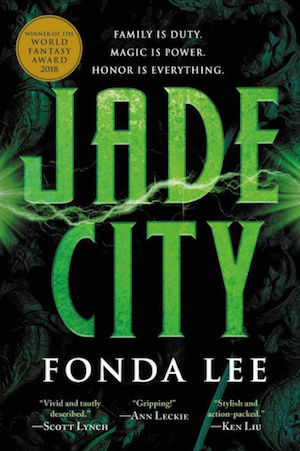
The award-winning Green Bone Saga—now in development with Peacock–is the ultimate genre-masher. It’s got generational crime family drama and politics. It’s got intricately constructed fight scenes (which, if you’re an aspiring writer, provide a masterclass in tension and execution). It’s got morally complex protagonists in both the Kaul family and its rivals in the Mountain clan, characters where the terms “hero” and “villain” don’t really apply.
And yes, it’s got powers, as certain groups of people are capable of harnessing the power of a mineral called jade. The result? Speed, strength, and other superhuman abilities, making the Green Bone Saga a blend of eastern and western influences that comes together as something wholly unique—and widely beloved by the fantasy community. With the trilogy finale Jade Legacy scheduled for September 2021, now is the perfect time to dive into this urban fantasy epic.
Hench by Natalie Zina Walschots
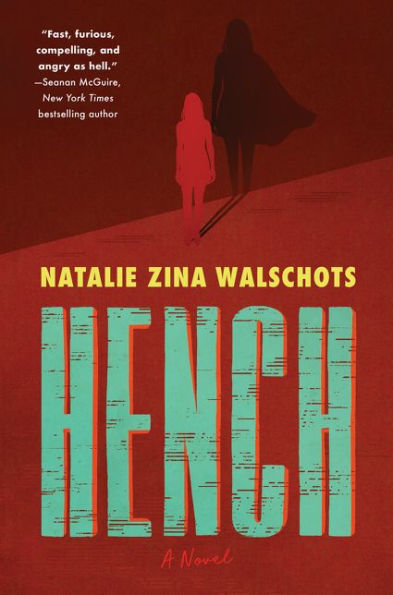
Are superheroes REALLY heroic? Or do they create more chaos than they actually solve? For most of her career, Anna doesn’t take that into consideration, she instead focuses on getting through her day-to-day as a hench—someone who does boring office work for supervillains and not really considering the battle between supposed good and evil. But when the city’s most notable superhero injures her by accident, she finds herself laid off and holed up with nothing but her own computer skills to keep her busy.
So she does what any good spreadsheet jockey would: she starts to crunch numbers. And the data tells her that actually, superheroes cause way more pain, suffering, and property damage than their rivals—but what is she going to do with this data? By taking genre tropes into the modern world of office work and big data, Hench offers a wry, fresh take on the superhero genre that grounds the fantastical in the mundane.
An Unkindness of Magicians by Kat Howard
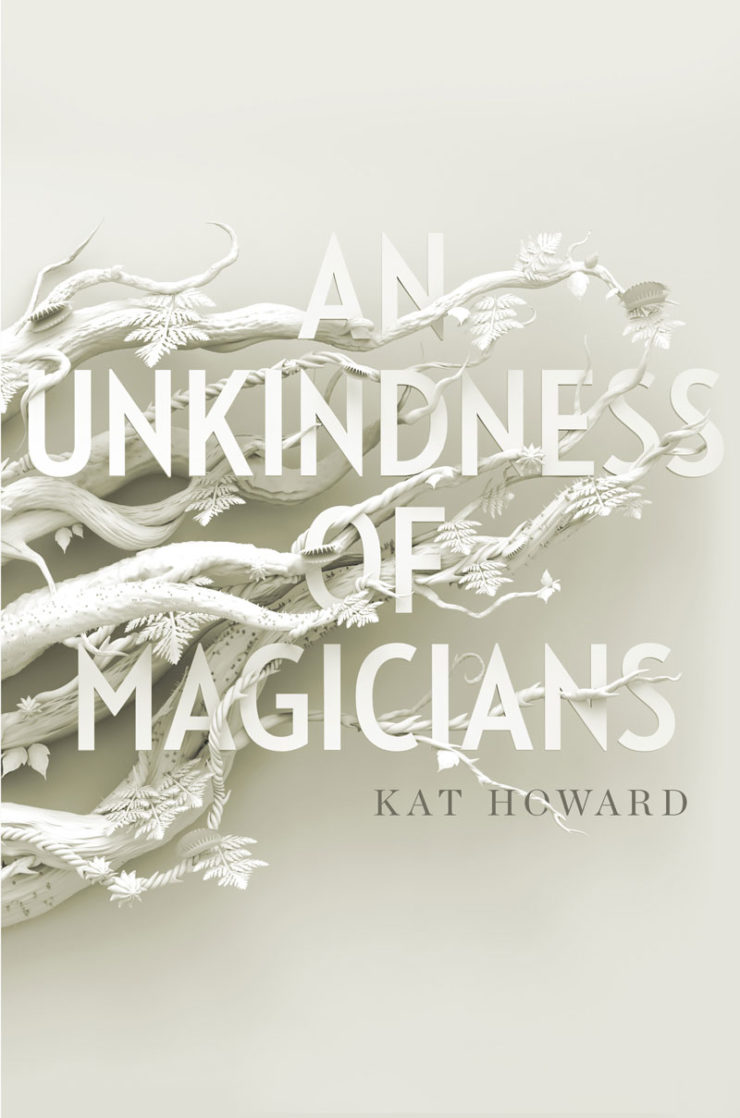
If Jade City is the Godfather of urban fantasy, then An Unkindness of Magicians (and its upcoming sequel A Sleight of Shadows) is the equivalent of The Sopranos for the genre. In modern-day New York City, magic is controlled by rival houses, and every ten years, an event known as The Turning that determines the direction of magic for the upcoming decade. Except there’s one problem: magic is dying.
Into this mix comes Sydney, a mysterious newcomer with shocking power. Hired as a house representative in the deadly Turning duels, Sydney grows in power and influence—but her goal isn’t to save the system; she’s set on destroying it and righting her past. Kat Howard’s award-winning novel touches on themes of revenge and belonging, all with top-notch worldbuilding and exquisite prose.
Originally published January 2021.
Buy the Book
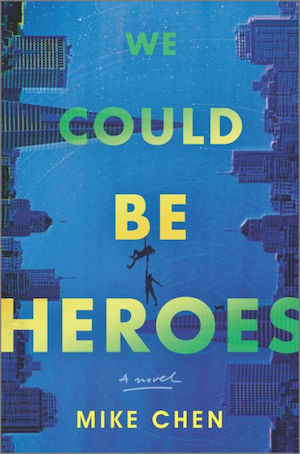

We Could Be Heroes
When he’s not writing about sci-fi for Tor.com, The Mary Sue, StarTrek dot com, and other geek media, Mike Chen writes sci-fi books. His novel We Could Be Heroes publishes January 26th with MIRA Books. Visit him on twitter and on his website for geekery discussion, dog photos, and many curse words.










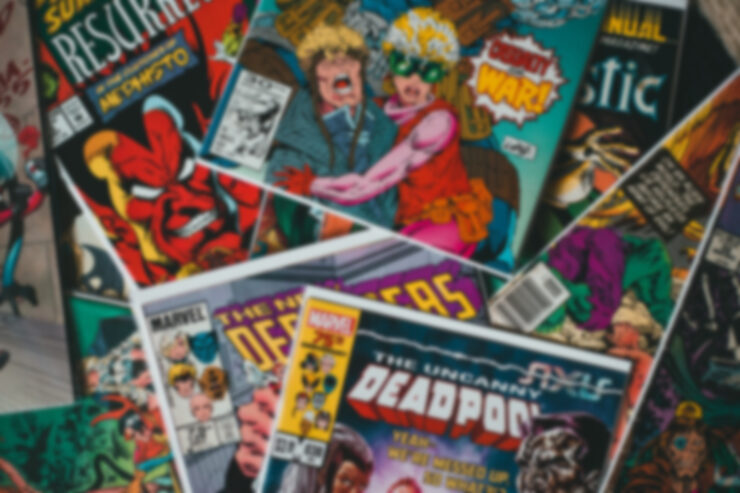
If I may, my book The Quiet is Loud features a scorned class of people with what could be considered superpowers, though they’re often mundane or not at all useful. Sometimes they’re dangerous. For example: Regulating body temperature, prophetic dreams, emotion-reading, and catatonia inducement.
They don’t wear spandex but would the Nine Princes in Amber (and the Various Princesses Who Deserve to Be in the Title Too) fall into this category?
Gully Foyle from Bester’s The Stars My Destination seems like the classic Old School example, and I certainly agree with @3 regarding the Royal Houses of both Amber and Chaos.
Less ancient but sadly also less well-known is Shuyun, the titular character from Sean Russell’s brilliant, early-1990s The Initiate Brother duology.
See also Seanan McGuire’s “Velveteen” series, about teenage superheroes who are also expected to participate in merchandising and marketing their images, and as well as dealing with “aging-out” and what to do next.
My personal favorite is The Secret World Chronicles based on the podcast of the same name. Superheroes vs. space Nazis. It don’t get better than that.
My favourite is Uncle Rogi from Intervention by Julian May. He and his twin brother were born with superpowers in post-war America. How do you cope when there’s no helpful manual and you have to figure out things the hard way.
9: I was in a Wild Cards-inspired Champions game a mere 30+ years ago, where a large number of people, player characters included, woke up with powers and no user manual. NPCs died, although generally not at PC hands [1]. We eventually worked out rudimentary testing protocols to safety determine what people could do. I wish they’d survived the intervening decades–I remember the invulnerability testing scheme was ingenious but not how it worked.
1: There was a near-miss when a strong character with poor feedback yanked a person out of a car seat without undoing the seatbelt.
My immediate thought was that Sawkill Girls by Claire Legrand fits right in line with this, albeit at a slower pace. The marketing (and the beginning) is mostly horror, but I think it meanders all through the SF/fantasy/horror thickets really nicely. It comes at some of the themes in Hench (particularly those arising from the QE/Supercollider relationship) from a Willa-Cather-esque angle. (Incidentally, as someone who has migraines, I really appreciate that one of the ‘superpowers’ involves hearing horribly painful screeching that tells you what times/places are important.)
Also, super grateful to the person who recommended Hench on the competence porn article comments; it was a great read and it’s fun to see it show up here! (I am being lazy for not looking it up, I know, but thanks all the same!)
How about Mur Lafferty novel “Playing for Keeps”? A world where various people get powers, but if your power is not consider heroic enough, you cannot be a hero and even against the law to have an hero name. So one of the rejected powered person opens a bar with mainly other rejects as clients go to and they bond together to say that the Heros are jerks.
W.H. Rhodes’ “The Telescopic Eye” (1876), J.H. Rosny’s “Un Autre Monde” (1895), and JD Beresford’s “The Wonder” (1911) seem to have plowed this ground well before anyone else, including Stapledon, Van Vogt, etc.
Charles Stross’s later Laundryverse books – The Annihilation Score, The Delirium Brief, The Labyrinth Index – have a nation-wide outbreak of superheros as part of the onset of Case Nightmare Green. Unfortunately, the acquisition of super-powers is accompanied by Krantzberg Syndrome, in which the extra-dimensional parasites that confer these powers nibble away at heir hosts’ neurons.
Not to forget George R.R. Martin’s shared world “Wild Cards” series which now spans 35 years and 30 books (and which I now all proudly own). A vast and complex universe where people got superpowers through an alien virus (or got physically deformed or died a horrible death) and how the world changed through it. Not too many capes or spandex though, but more realism.
Pandemonium, by Daryl Gregory. Beginning in the 1950’s, people have been randomly possessed by avatars that bring with them superpowers, possibly the best psychoanalytical alternate history novel of its time.